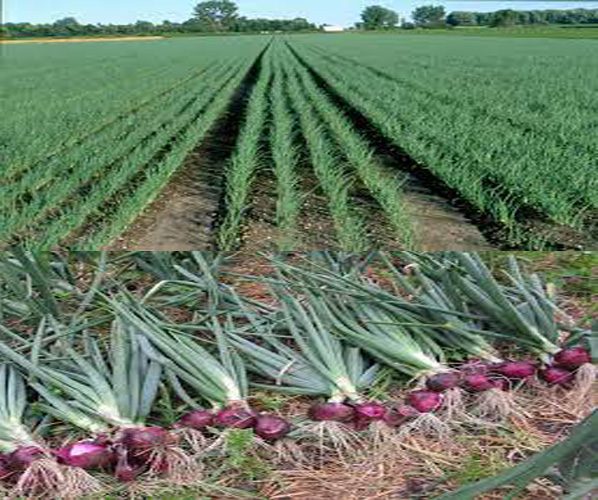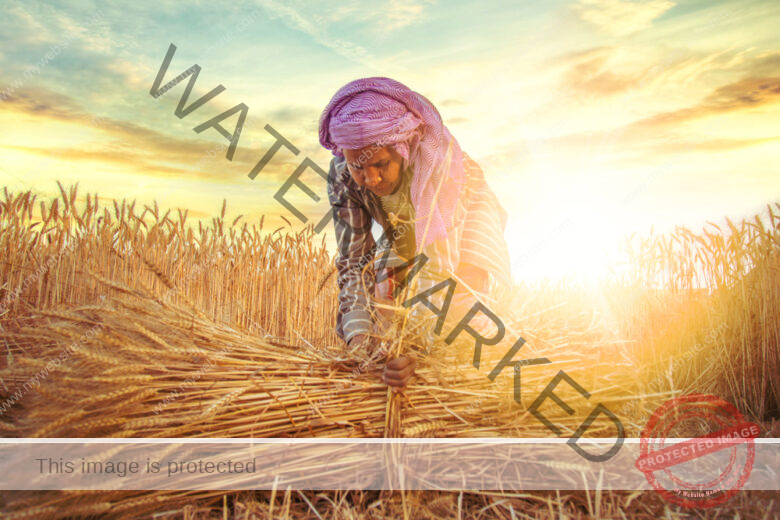If you’re a farmer or considering starting an agricultural venture in Washington State, you’re in a prime location for cultivating a wide range of profitable crops.
With its diverse climate, fertile soils, and robust agricultural industry, Washington State offers excellent opportunities for crop production.
From staple crops to specialty varieties, there are 12 profitable crops that thrive in this region. These crops include apples, cherries, hops, wine grapes, potatoes, wheat, blueberries, raspberries, asparagus, onions, mint, and peas.
By focusing on these high-demand crops, you can tap into local and global markets, capitalize on Washington’s agricultural strengths, and potentially achieve significant financial success.
12 Profitable Crops to Grow In Washington State
It is fascinating to discover the rich agricultural landscape in the state of Washington. With its abundance of fertile lands and diverse climate, Washington is home to a thriving agricultural sector.
From bountiful orchards to lush vineyards and expansive fields, the state offers a myriad of opportunities for cultivating profitable crops.
Let’s explore the 12 profitable crops that thrive in this region. These crops include:
- Apples
- Cherries
- Hops
- Wine Grapes
- Potatoes
- Wheat
- Blueberries
- Raspberries
- Asparagus
- Onions
- Mint
- Peas
#1. Apples
Washington State is renowned for its apple production, making it one of the top apple-growing regions in the United States.
With diverse varieties like Gala, Red Delicious, and Granny Smith, the state’s orchards yield high-quality apples for both fresh consumption and processing into various apple products.
The favorable climate, fertile soils, and advanced orchard management practices contribute to the profitability of apple cultivation in Washington.
Read Also: 10 Profitable Farming in Zimbabwe
#2. Cherries
Washington State is a leading producer of cherries, particularly sweet cherries. The state’s mild climate and fertile soils create ideal conditions for cherry orchards.
With premium varieties like Bing, Rainier, and Skeena, Washington’s cherries are highly sought after in domestic and international markets.
The short harvesting season and high demand for fresh cherries make cherry cultivation a profitable venture for farmers in the state.
#3. Hops
Washington State dominates the hop industry in the United States, accounting for a significant portion of the country’s hop production.
Read Also: 20 Most Profitable Crops for Small Farms
Hops are a vital ingredient in the brewing industry, and the state’s climate and soil characteristics provide optimal conditions for hop cultivation.
The Yakima Valley region in Washington is particularly renowned for its hop farms, attracting brewers from around the world.
The strong demand for hops, driven by the craft beer industry, makes it a profitable crop for Washington farmers.
#4. Wine Grapes
Washington State’s wine industry has experienced remarkable growth in recent years, and wine grapes play a crucial role in this success.
The state’s arid climate, ample sunshine, and diverse microclimates create ideal conditions for grape cultivation.
Read Also: 12 Profitable Crops In Pennsylvania
Washington produces a variety of wine grape varieties, including Cabernet Sauvignon, Merlot, Riesling, and Chardonnay.
The high-quality grapes and the reputation of Washington wines contribute to the profitability of wine grape farming in the state.
#5. Potatoes
Potatoes are a profitable crop in Washington State, with the Columbia Basin region being a significant potato-growing area.
The state’s well-drained soils, cool climate, and abundant water supply provide optimal conditions for potato cultivation.
Washington produces a wide range of potato varieties, including Russet, Yukon Gold, and Red potatoes, which are highly valued for their quality and taste.
Read Also: 12 Profitable Crops In Oregon
The demand for potatoes, both for fresh consumption and processing into products like French fries and potato chips, makes it a lucrative crop for farmers in Washington.
#6. Wheat
Wheat is a profitable crop in Washington State, with the eastern part of the state being a major wheat-growing region.
The dry climate, fertile soils, and advanced farming techniques contribute to high yields and quality wheat production.
Washington produces both hard and soft wheat varieties, which are used for various purposes such as baking, brewing, and animal feed.
Read Also: 12 Most Profitable Greenhouse Crops
The global demand for wheat makes it a lucrative crop for farmers in Washington, contributing to the state’s agricultural success.
#7. Blueberries
Washington State is a leading producer of blueberries, known for its flavorful and high-quality berries.
The state’s moderate climate and acidic soils create optimal growing conditions for blueberry cultivation.
The demand for blueberries, both fresh and processed, has been steadily increasing due to their nutritional benefits and versatile usage in various food products.
Blueberry farming offers farmers in Washington a profitable opportunity to tap into the growing market for this popular superfruit.
Read Also: 12 Most Profitable Crops In Michigan
#8. Raspberries
Raspberry production is another profitable venture in Washington State. The state’s climate, particularly in the western regions, provides an ideal environment for raspberry cultivation.
Washington produces both red and black raspberries, which are in high demand for fresh consumption, preserves, and the frozen fruit market.
With their vibrant flavors and health benefits, raspberries have gained popularity among consumers, making raspberry farming a lucrative option for growers in Washington.
#9. Asparagus
Washington State’s climate and well-drained soils make it suitable for asparagus cultivation. Asparagus is a high-value crop with a growing demand in both domestic and international markets.
The state’s fertile fields produce tender and flavorful asparagus spears, favored by consumers and chefs alike.
Asparagus farming offers a profitable opportunity for farmers in Washington, especially when employing efficient cultivation techniques and meeting the market demand for this versatile vegetable.
#10. Onions
Onions are a profitable crop in Washington State, with the Columbia Basin region being a major onion-growing area.
The state’s volcanic soils, long daylight hours, and irrigation infrastructure create favorable conditions for onion cultivation.
Washington produces a variety of onion types, including yellow, red, and sweet onions, catering to different market preferences.
The demand for onions, both for fresh consumption and processing, makes onion farming a profitable endeavor for farmers in Washington.
#10. Onions
Onions are a profitable crop in Washington State, with the Columbia Basin region being a significant onion-growing area.
The state’s volcanic soils, long daylight hours, and irrigation infrastructure create ideal conditions for onion cultivation.
Washington produces a variety of onion types, including yellow, red, and sweet onions, catering to different market preferences.
The demand for onions, both for fresh consumption and processing, makes onion farming a lucrative endeavor for farmers in Washington.
With proper cultivation techniques and efficient marketing strategies, growers can capitalize on the profitability of onions in the state.
#11. Mint
Mint is a profitable crop that thrives in the cool and moist climate of Washington State. The state’s rich soils and ample water supply provide optimal growing conditions for this aromatic herb.
Mint has a wide range of uses, including culinary, medicinal, and cosmetic applications. The strong demand for mint in the food and beverage industry, as well as the pharmaceutical and personal care sectors, makes it a lucrative crop for farmers in Washington.
By implementing proper cultivation practices and exploring value-added opportunities, growers can capitalize on the profitability of mint and meet market demands.
Optimal Cultivation Practices for Profitable Crops in Washington State
To maximize the yield and quality of profitable crops in Washington State, farmers can employ optimal cultivation practices.
These include proper soil preparation, efficient irrigation techniques, timely planting and harvesting, effective pest and disease management, and nutrient management strategies.
Implementing these practices ensures optimal crop growth and productivity, contributing to the overall profitability of the farming operation.
Effective Strategies for Maximizing Crop Profitability in Washington State
Maximizing crop profitability in Washington State requires strategic decision-making and implementation.
Farmers can adopt effective strategies such as diversifying crop selection, identifying high-value market niches, improving operational efficiency, optimizing resource allocation, and exploring value-added opportunities.
By staying informed about market trends, utilizing technology advancements, and implementing sound business practices, farmers can enhance their crop profitability and achieve long-term success.
Risk Management Strategies for Washington State Crop Farming
Crop farming in Washington State is not without its risks, including weather variability, market fluctuations, and pest and disease outbreaks.
Implementing risk management strategies is crucial for farmers to mitigate potential losses and protect their investments.
These strategies include crop insurance coverage, diversification of crops and markets, monitoring weather patterns, implementing integrated pest management practices, and maintaining strong financial management practices.
By effectively managing risks, farmers can safeguard their profitability and ensure the sustainability of their farming operations.
Market Demand of these Profitable Crops in Washington State
Understanding market demand is essential for successful crop farming in Washington State. Farmers should conduct market research to identify consumer preferences, emerging trends, and potential market opportunities.
By aligning their crop selection with market demand, farmers can optimize their sales potential and profitability.
Developing relationships with local buyers, participating in farmers’ markets, exploring export opportunities, and utilizing online platforms are effective ways to tap into the market demand for these profitable crops.
Key Factors for Successful Planting of Profitable Crops in Washington State
Several key factors contribute to the successful planting of profitable crops in Washington State.
These include selecting suitable crop varieties that are adapted to the local climate and soil conditions, practicing proper crop rotation to manage soil health, implementing timely planting schedules, optimizing irrigation practices based on crop water requirements, implementing integrated pest and weed management strategies, and maintaining appropriate nutrient management.
By considering these key factors, farmers can increase their chances of successful crop establishment and achieve profitable yields.
Economic Significance of these Profitable Crops in Washington State
These profitable crops hold significant economic significance for Washington State.
They contribute to the state’s agricultural revenue, create employment opportunities, support local businesses along the supply chain, and enhance export opportunities.
The success of these crops strengthens the overall economy of the state and establishes Washington as a prominent player in the national and global market for these agricultural commodities.
Challenges of Growing these Profitable Crops in Washington State
While profitable, growing these crops in Washington State also presents certain challenges.
These challenges include managing disease and pest pressures, addressing water availability and irrigation issues, navigating fluctuating market demands and prices, adapting to changing climate conditions, and complying with evolving regulations and policies.
Overcoming these challenges requires proactive planning, continuous learning, and adopting innovative solutions to ensure the sustained profitability and resilience of crop farming operations in Washington State.
Most Profitable Crops to Grow in Washington State
Washington State offers a conducive environment for cultivating various profitable crops.
Some of the most lucrative crops include apples, cherries, hops, wine grapes, potatoes, onions, blueberries, raspberries, mint, and wheat.
These crops benefit from the region’s fertile soils, favorable climate conditions, advanced farming techniques, and strong market demand, making them highly profitable choices for farmers in Washington.
Top Crops in Washington State
The top crops in Washington State vary based on factors such as market demand, production volume, and economic impact.
However, some of the key crops that dominate the agricultural landscape in the state include apples, cherries, wheat, potatoes, hops, grapes, onions, blueberries, raspberries, and mint.
These crops contribute significantly to Washington’s agricultural industry and play a crucial role in the state’s economy.
Ranking of Washington State in the US for Growth of Crops
Washington State holds prominent positions in the national agricultural landscape for the growth of various crops.
For instance, it is the leading producer of apples, cherries, hops, and mint in the United States. It is also one of the top wheat-producing states and a major contributor to the potato, onion, grape, blueberry, and raspberry industries.
Washington’s agricultural prowess and high rankings showcase its importance and impact on the national agricultural market.
Washington State Agriculture
Washington State has a vibrant and diverse agricultural sector. Known for its fertile lands, favorable climate, and advanced farming practices, the state excels in crop production, livestock farming, and specialty agricultural products.
Key agricultural activities in Washington include the cultivation of crops like apples, cherries, wheat, potatoes, hops, grapes, onions, berries, mint, and more.
The agricultural industry in Washington contributes significantly to the state’s economy, rural communities, and overall food production.
Conclusion
Washington State presents a favorable environment for cultivating a variety of profitable crops. With its fertile soils, diverse climate, and strong market demand, farmers in this region have the opportunity to thrive. By capitalizing on the 12 crops mentioned, farmers can unlock the potential for financial success and contribute to Washington’s vibrant agricultural industry.




